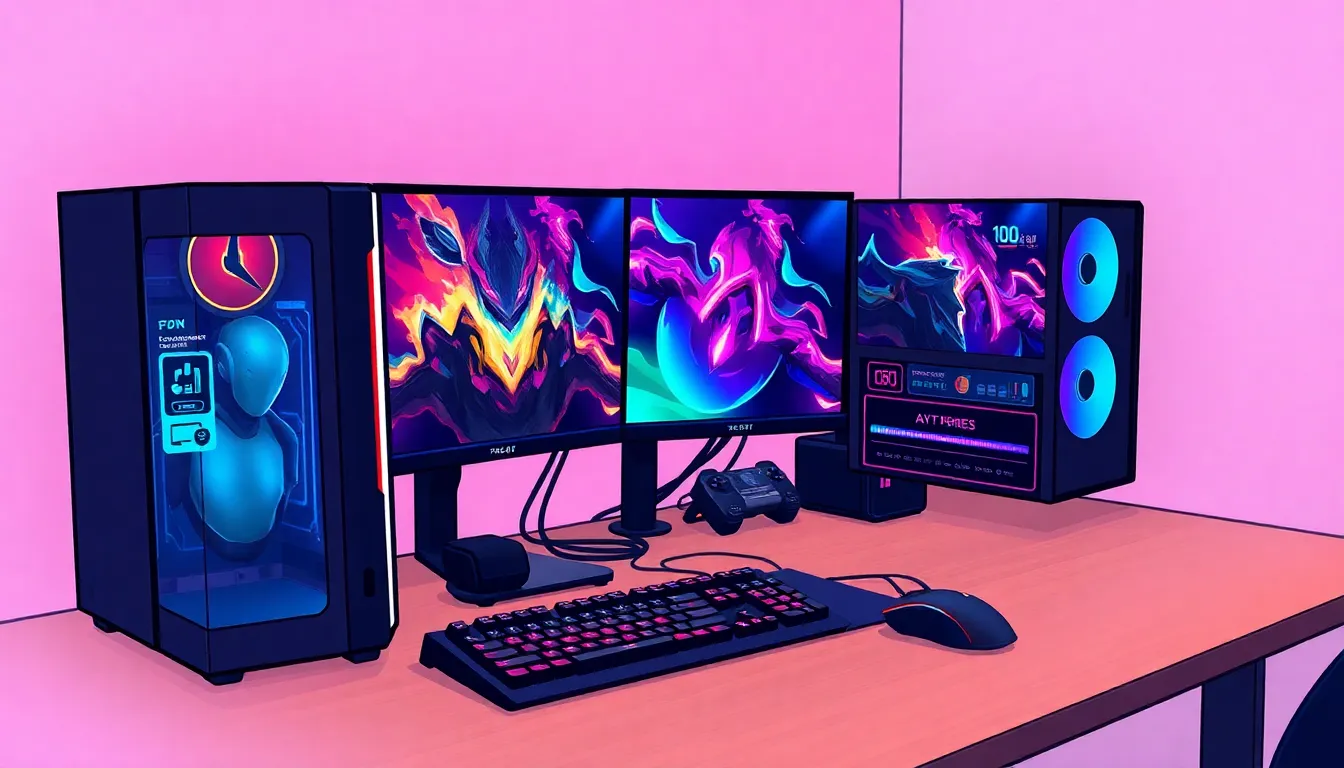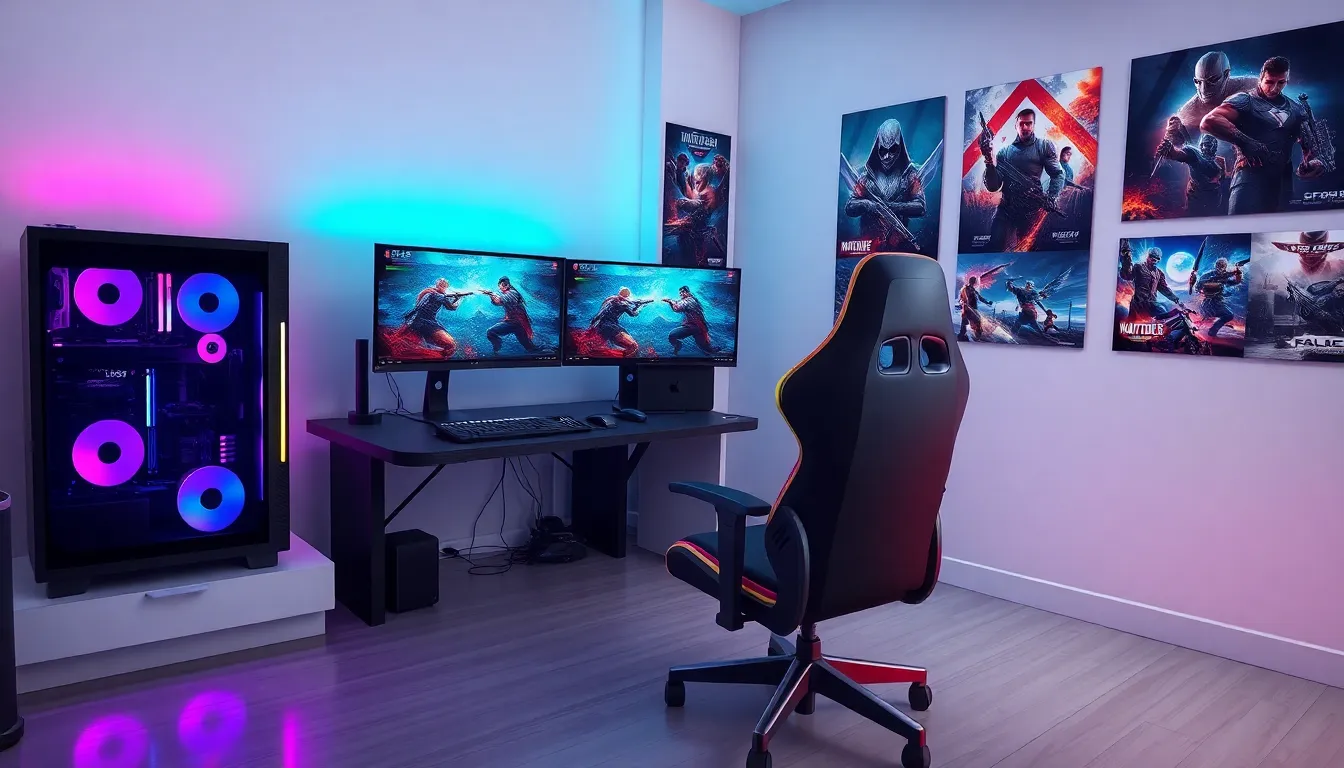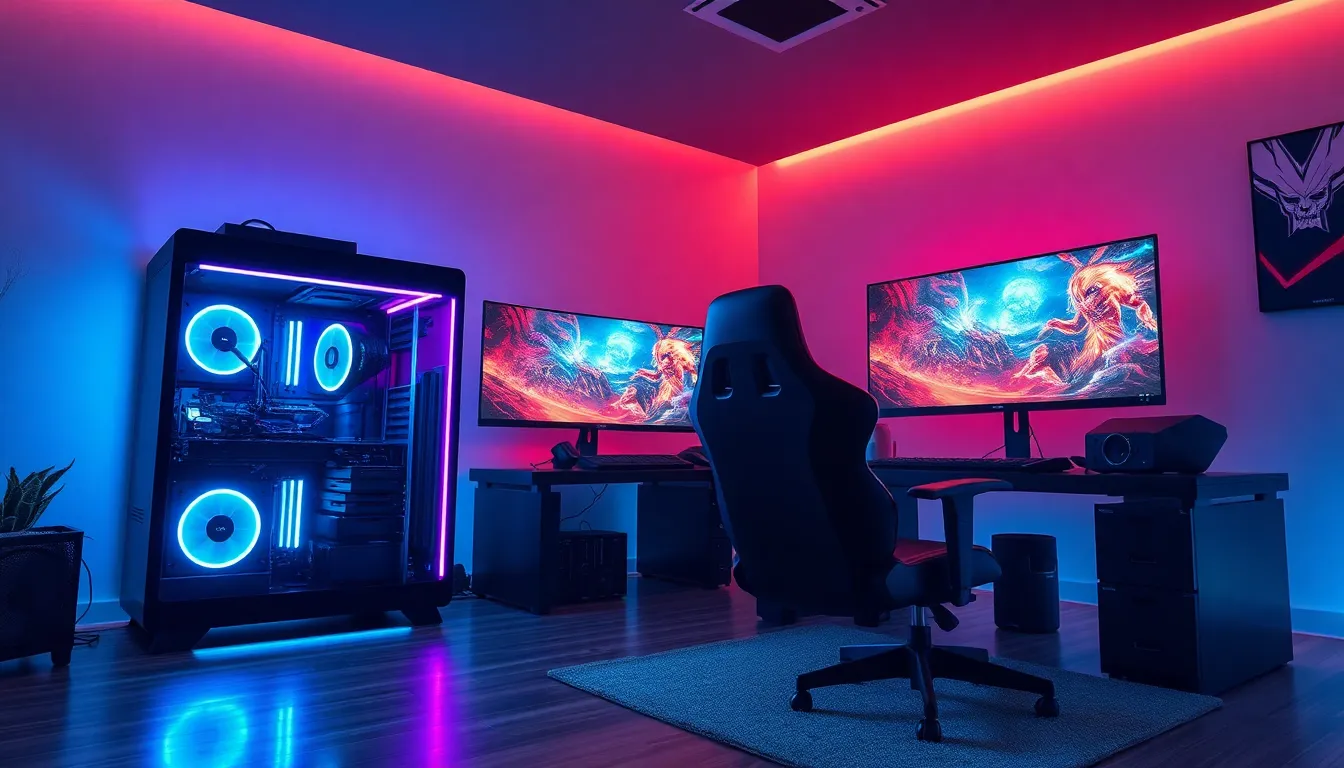What Does More RAM Do for Gaming? Unlock Smoother Performance and Immersive Gameplay
In the high-octane world of gaming, every millisecond counts. Imagine your favorite game running smoother than a buttered slide on a sunny day. That’s where RAM struts onto the stage like a rock star. More RAM means your gaming rig can juggle multiple tasks without breaking a sweat, letting you dive into immersive worlds without the dreaded lag monster creeping in. But what exactly does more RAM do for gaming? It’s not just about having a flashy number on your specs sheet. It’s about enhancing your experience, ensuring your virtual adventures unfold seamlessly. So, if you’re ready to level up and leave those pesky slowdowns behind, let’s explore how boosting your RAM can transform your gaming escapades into a smooth, exhilarating ride.
What Does More RAM Do for Gaming
RAM plays a crucial role in gaming performance. Increased RAM enhances the ability of a system to handle demanding games and multitasking processes.What Is RAM?
RAM, or Random Access Memory, temporarily stores data and instructions that the CPU uses during gameplay. This memory allows quick access to the information, improving game load times and responsiveness. More RAM means the device can retain more data simultaneously. Gamers notice smoother performance in complex environments or when using resource-intensive features. Upgrading RAM can eliminate slowdowns when transitioning between tasks or running background applications.Types of RAM
Different types of RAM serve various purposes in gaming systems. DDR4 is the most common type found in modern devices, offering high speeds and efficiency. Another emerging type, DDR5, provides improved bandwidth and speeds, beneficial for future gaming titles. These types differ in their capacity to handle data and power consumption. Gamers should consider their hardware compatibility when selecting RAM. While older systems may utilize DDR3, newer platforms are transitioning to DDR4 and DDR5, making upgrade options essential for optimal performance.Benefits of More RAM for Gaming

Improved Performance
Enhanced RAM boosts game load times. Faster data retrieval means games start quicker, reducing waiting periods. Increased memory capacity enables systems to maintain higher frame rates during intense action scenes. Players notice fewer stutters and pauses, resulting in more fluid gameplay. With more RAM, even graphically demanding titles run smoothly, improving overall immersion. Upgrading to DDR4 or DDR5 RAM can also provide speed enhancements. Both types offer significant improvements over older RAM generations, allowing for more efficient processing during gameplay.Enhanced Multitasking
More RAM greatly improves multitasking capabilities. Gamers often run background applications, such as streaming software or web browsers, alongside their games. Increased memory allows these applications to run smoothly without impacting game performance. With 32 GB of RAM, players can switch effortlessly between gaming and resource-heavy tasks. Upgrading from 8 GB to a higher capacity prevents system slowdowns during intense sessions. It ensures critical tasks proceed without interruption, allowing for a seamless gaming experience. Overall, having additional RAM facilitates better overall system efficiency during multitasking scenarios.
With 32 GB of RAM, players can switch effortlessly between gaming and resource-heavy tasks. Upgrading from 8 GB to a higher capacity prevents system slowdowns during intense sessions. It ensures critical tasks proceed without interruption, allowing for a seamless gaming experience. Overall, having additional RAM facilitates better overall system efficiency during multitasking scenarios.
RAM Requirements for Modern Games
Modern games demand significant RAM to function optimally. Many titles require a balance between minimum and recommended specifications to ensure smooth performance.Minimum vs. Recommended RAM
Minimum RAM specifications for today’s games usually stand at 8 GB. This amount suffices for basic gameplay, allowing players to enjoy a variety of titles. Recommended RAM often reaches 16 GB, which supports more demanding graphics and multitasking. Some high-end games even benefit from 32 GB, enhancing performance in resource-intensive scenarios. While 8 GB works for casual gaming, 16 GB or more caters to serious gamers wanting a seamless experience, especially during intense gameplay sessions.Impact on Frame Rates
Frame rates heavily depend on RAM available during gaming sessions. Increased RAM allows systems to process data more efficiently, reducing lag and stuttering. Many gamers see frame rates improve when upgrading from 8 GB to 16 GB. High-performance setups can reach even better frame rates with 32 GB, particularly in complex environments. Smooth frame rates lead to a more enjoyable and immersive gaming experience, making additional RAM a worthwhile investment for serious gamers.Other Factors Affecting Gaming Performance
Gaming performance relies on many factors beyond RAM. Key components include the GPU and CPU.GPU and CPU
A powerful GPU (Graphics Processing Unit) directly impacts frame rates and visual fidelity. It renders images and processes graphics data. The CPU (Central Processing Unit) manages game logic and simulations. An efficient CPU complements a strong GPU, ensuring no bottlenecks occur during gameplay. Optimal performance often requires a balanced synergy between both. Gamers typically experience improvements when upgrading either component, but overemphasis on RAM alone won’t yield maximum performance. Instead, a well-rounded system with adequate GPU and CPU resources is crucial for immersive gaming experiences.Storage Solutions
Storage solutions play a vital role in gaming performance as well. An SSD (Solid State Drive) significantly reduces load times compared to traditional HDDs (Hard Disk Drives). Fast data access improves overall system responsiveness. Games installed on SSDs launch quicker and lead to smoother transitions during gameplay. Additionally, ample storage capacity ensures that multiple games can reside on the system without requiring constant uninstallation and reinstallation. While more RAM enhances multitasking, efficient storage solutions directly affect loading speeds, making them equally important in optimizing gaming performance.
Additionally, ample storage capacity ensures that multiple games can reside on the system without requiring constant uninstallation and reinstallation. While more RAM enhances multitasking, efficient storage solutions directly affect loading speeds, making them equally important in optimizing gaming performance. 




